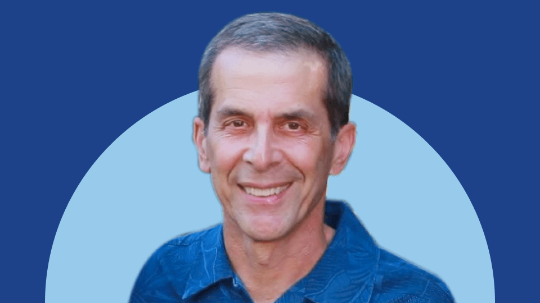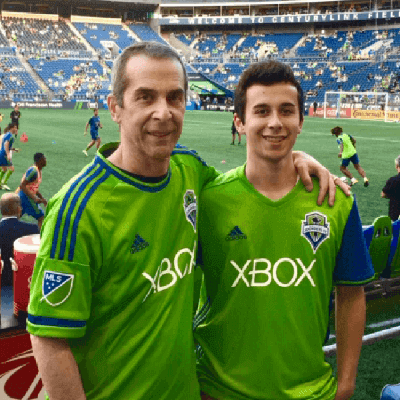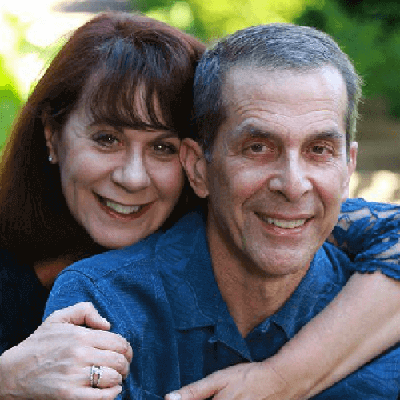
DAVID HAS NEWFOUND HOPE WITH THE HELP OF BREYANZI®

DAVID HAS NEWFOUND HOPE WITH THE HELP OF BREYANZI®
Home > How Breyanzi Can Help > Hear From Breyanzi Patients > David
David was hoping for remission after two other treatments failed.
The last thing David expected to hear on the other end of the phone line was that he had cancer. A feeling of utter devastation took over when he found out he had diffuse large B-cell lymphoma (DLBCL).
“It was difficult to convey the news to my family because there was a lot that I didn’t know and little that I did know.”
When talking to his doctor about what treatment would be like, the prognosis didn’t look good. His doctor told him that the chances of beating his cancer weren’t in his favor. Determined to fight those odds, David went into fighting mode.
Being a Seattle native and lover of sports, David looked to his favorite team, the Seattle Seahawks, for inspiration on perseverance and maintaining a positive mindset. A mindset that he’d depend on. He promised himself that he would do everything he could to fight the disease.
Over the next couple of years, David went through multiple rounds of chemotherapy, 3 rounds of radiation, and 4 lumbar punctures before his doctor gave him the news of being in “full metabolic remission.”
“I’d cycle between sick days and sicker days. I couldn’t even walk around the block or up the stairs because I was so weak. So, when my doctor told me the news, I didn’t really know what it meant. All I heard was ‘full’ and ‘remission.’ I was thrilled.”
Unfortunately, that feeling didn’t last long. After receiving a bone marrow biopsy, he quickly deflated after hearing the results—he still had cancer in his marrow.
Determined not to fall prey to a negative mindset, David looked for next steps. “I was always committed to pressing on. I prayed for the strength to keep going,” he says.
An allogeneic stem cell transplant was David’s next option. “We couldn’t find a donor right away,” says David, “so I was on maintenance medications to help me tread water while a transplant could be lined up.”
After months of waiting, a donor was finally found, and the transplant was scheduled. Two weeks out from the procedure, David went in for a scan, which revealed 2 new tumors. The location of the tumors proved to be an obstacle for the transplant to move forward. David could no longer go through with the procedure.
“I was too diseased. Finding out that the transplant fell through, well, it was some of the worst news of my life.”
The only option remaining was to use radiation in an attempt to reduce the tumors enough for an autologous transplant, a procedure David’s doctors warned was risky. David agreed to the plan and, once recovered enough, was finally able to get his stem cell transplant. After spending 28 days in the hospital and weeks of hoping for positive results, David had reached remission.
But when David later went in for a scan, he found out his cancer had returned. “My cancer was stronger than I gave it credit for.”
David’s doctors were at a point where they didn’t have a clear treatment direction left for him. “David was pretty much out of options. He’d been given about 6 months to live if he didn’t have another treatment,” says Audrey, David’s wife. His doctor gave him the option of foregoing further treatment, conceding to the cancer, and living his remaining days as comfortably as possible. “Conceding” was not in David’s vocabulary. He told his doctor that he still had too much to live for and would continue the fight.
Because David had received at least 2 previous treatments that didn’t work or stopped working, the doctor called David and told him about a clinical trial for CAR T cell therapy, now known as Breyanzi. David was very interested in learning more. They went over the procedure and talked about potential serious side effects of Breyanzi that can be life-threatening and can lead to death, such as cytokine release syndrome and neurologic toxicity, as well as other common side effects including fever, low white or red blood cells, severe diarrhea, or severe nausea.
See additional Breyanzi Important Safety Information.
With few options remaining, David believed that Breyanzi would be right for him. “I promised to try everything possible, and while I understood the risks, the alternative was giving in to cancer in palliative care.”
About 4 weeks after apheresis, David received his Breyanzi cells and found that the day of infusion wasn’t as long as he thought it would be. “Two vials in, and then I was sent to recover,” says David. After getting a low-grade fever, David was admitted to the hospital for almost a week to be treated for cytokine release syndrome. Side effects like cytokine release syndrome and neurologic toxicity can be life-threatening and can lead to death. Because of the risk of cytokine release syndrome, neurologic toxicity, and other side effects, patients like David must remain at, or close to, where they received treatment for at least 4 weeks after the infusion for side-effect monitoring.
A few weeks later, when it came time to receive his scans, David’s results came back clean. “At the first clean scan at the end of 1 month, my doctor told me there were too little data to form any clear conclusions,” says David. After the second clean scan another month later, David asked the doctor what that meant. His doctor responded, “Well, 2 clean scans are better than 1!”
David was getting better as 2 clean scans turned to 3, then 4, and his scans continued to remain clear.
“I was overjoyed once David went into remission again because we had been given a pretty dire prognosis before that, and the fact that he had repeated clean scans was amazing.”
–Audrey
While David’s scans were clean, they do not mean he’s cancer-free. David continues to be monitored for possible disease recurrence and long-term side effects from CAR T cell therapy.
David believes that his faith had a part to do with his recovery. It instilled confidence in him, and that confidence was shown to his doctors and those around him. There was a commitment to keep fighting.
David is going to ball games and traveling with his family on vacations. “I felt better after the infusion,” he says.
“I feel indebted to Bristol Myers Squibb because CAR T cell therapy is why I’m here today, living day to day.”
If there is one thing David wants others to know, it’s to commit yourself to pursue every reasonable opportunity to get better.








